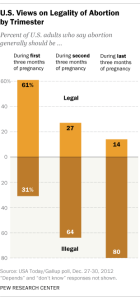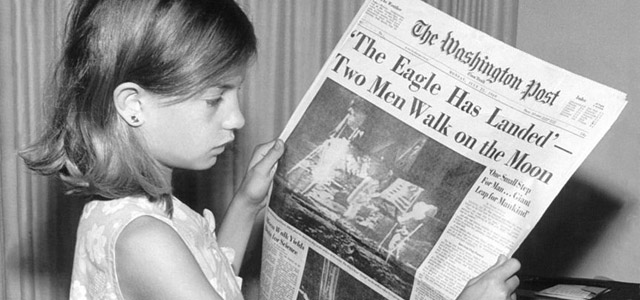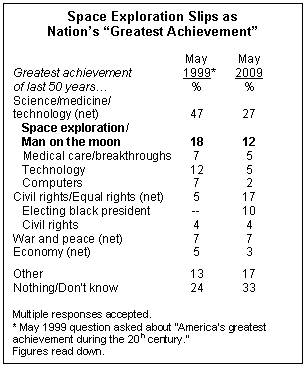Neil Armstrong took “one giant leap for mankind” when he became the first man to walk on the moon on July 20, 1969, ending the space race and drawing the rapt attention of Americans everywhere. (An overwhelming 80% of Americans who were eight or older when Armstrong landed on the moon remember exactly where they were at the time of the event.)


But a 2009 survey showed that the moon landing had fallen in the public’s view of top American achievements. Just 12% of Americans think putting a man on the moon was the nation’s greatest achievement over the previous half century.

In 2009, a Pew Research Center poll asked Americans to name the country’s greatest accomplishment of the past 50 years. About a quarter of Americans (27%) said they viewed feats in science, medicine or technology as the greatest achievement. Fully 17% of the public said civil rights or equal rights was the greatest achievement in 50 years and 10% said electing a black president.
These figures represented a decrease in public opinion about the importance of space exploration since 1999, when we polled about the greatest achievement of the 20th century. At that time, almost half of Americans (47%) mentioned accomplishments in science, medicine or technology as America’s greatest achievement and 18% specifically mentioned space exploration and putting a man on the moon.
Notably, the Boomer generation—born between 1946 and 1964—was the only group of Americans to remain consistent in their view of the man-on-the-moon achievement. In 1999, 19% of Boomers cited space exploration as the nation’s greatest accomplishment. Ten years later, 17% of Boomers said the same.
But Americans haven’t become entirely disenchanted with space exploration. In 2010, a majority of Americans (63%) were optimistic that astronauts would land on Mars by 2050. Read more.